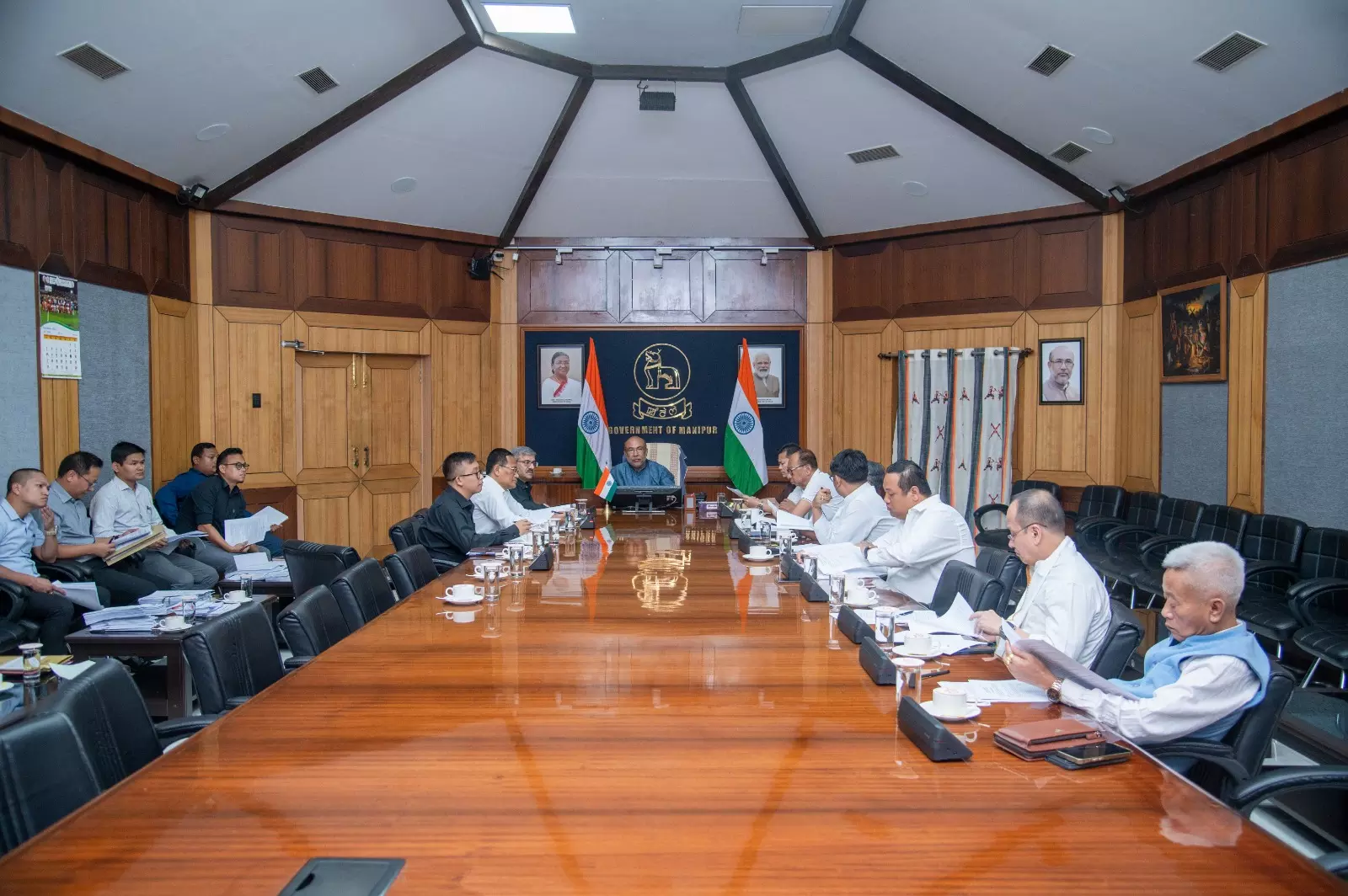
NCST asks Manipur govt to file action-taken report on safeguarding tribal rights
It is anyone’s guess whether timely compliance of the NCST recommendations in December 2022 could have averted the ethnic violence that broke out in the state on May 3 this year.

The National Commission for Scheduled Tribes (NCST) has sought an action-taken report from the Manipur government on a set of recommendations it had made to prevent alleged violation of tribal rights, including infringement of tribal land and forest.
The commission in a letter to Manipur Chief Secretary Dr Vineet Joshi (dated August 23) said the report should be filed within 30 days of receiving the communique.
It had come out with 15 recommendations after a review meeting with representatives of the state government and tribal organisations in December last year. The meeting was convened to evaluate constitutional safeguards available to the tribals, and implementation of forest rights and welfare schemes meant for the community in Manipur.
The recommendations included proposals to rollback state government orders pertaining to land and forest rights of the tribals, review the Armed Forces (Special Powers) Act in the hill areas, and reverse the government’s language policy among others.
The state government was asked to review a revenue department order to “transfer reserve forest, including pocket settlements” from Kangpokpi district to Imphal East district without the “specific approval” of the Hill Areas Committee (HAC).
Kangpokpi is a Kuki-dominated tribal district while Imphal East is a Meitei-majority district.
Since “hill areas” have been well-defined in the First Schedule of Manipur Legislative Assembly (Hill Areas Committee) Order 1972, any notification, executive order, legislative acts/amendments issued without the approval of the HAC pertaining to any boundary dispute or demarcation of tribal lands needs to be “reviewed/rescinded,” the commission told the Manipur government.
463 hills villages wrongly included in valley districts
The recommendation assumes significance as the commission found that several hill villages were wrongly included in valley districts in the booklet of 2011 census and administrative atlas of Manipur.
Stating that the deputy registrar-general (maps) already pointed out the discrepancy to the state government, the NCST asked the state government to inform it about the action taken or to be taken to rectify the list of villages.
Altogether 463 hills villages were found to be included in the valley districts of Kakching, Imphal East, Imphal West, Thoubal, and Bishnupur.
The inclusion changed the demography of the hills and valley and also reduced the size of the hill areas, tribal representatives had told the commission.
AFSPA withdrawn only from valley districts
The commission’s attention was further drawn towards the alleged discriminatory manner in which the AFSPA was withdrawn only from 15 police station areas in the valley districts.
Considering that the ground situation in the hill districts was peaceful when it made its observations in December 2022, the NCST had suggested that the state government could review the continuation of the stringent act in the hill areas.
“Scheduled Tribe students normally opt to study their language (Major Indian Language / MIL) or additional English in lieu of Meitei/Manipuri language in Class 10th and Class 12th standards. As such, it is alleged that mandating the ST candidates to produce 10th/12th standard certificates of studying Meitei/ Manipuri language is unfair and discriminatory. Such policy/rules may be reviewed taking the interest of the Scheduled Tribes of the state,” the commission told the state government.
The NCST also sought data of ST representations in various state government departments and institutions, including recruitment of MIL (of recognized tribal dialect) teachers in government schools and colleges in the last three years.
It had also felt the need to launch a dedicated website for the tribal affairs and hill department to make available detailed information related to STs of Manipur, their population, implementation status of development programmes, and physical and financial progress of the past five years.
The commission again reminded the state government to furnish department-wise “budgetary allocation vis-à-vis physical target/achievements” during the last three years.
Ethnic violence could have probably been averted
It is now anyone’s guess whether timely compliance of the recommendations could have averted the unprecedented ethnic violence that broke out in the state on May 3 this year, just about five months after the commission made some critical observations about the state of tribal affairs in Manipur.
The NCST questioned the state government’s seriousness in “getting funds in time from the Ministry of Tribal Affairs” and also accused the government of not complying with certain guidelines of the ministry.
Kuki-Zo civil society organisations and leaders blame the alleged anti-tribal policies of the state’s BJP government headed by N Biren Singh for the ethnic conflict raging in the state for over four months now.
When contacted, the state government sources said many of the recommendations were already complied with and a detailed report to the commission was “on its way.” The officials however refused to divulge more saying they were not authorised to speak to the media on a "sensitive subject."
Read the full letter of the National Commission for Scheduled Tribes (NCST) here

